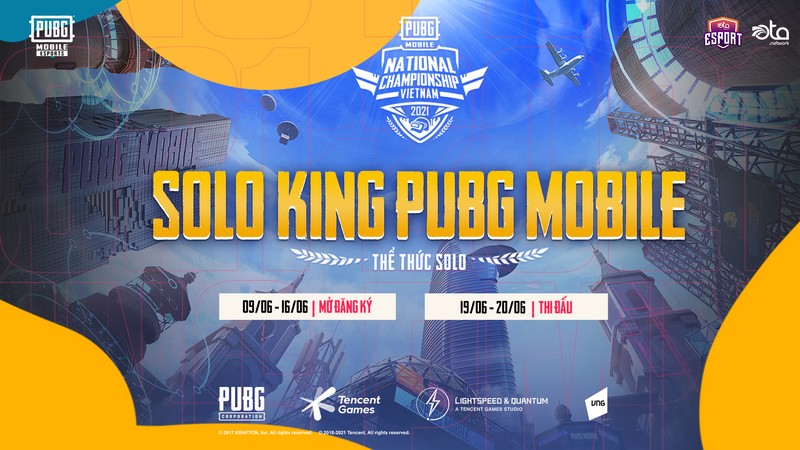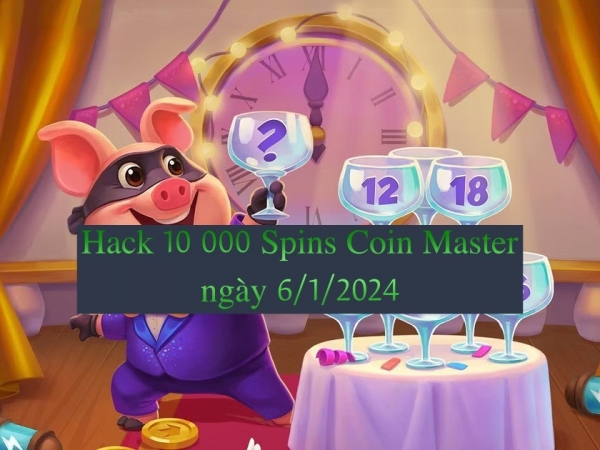Online game addiction is a growing problem among young people. It can lead to physical, psychological and social issues if left unchecked. This article will discuss the signs of online gaming addiction, how to establish a healthy gaming routine, tips to reduce the amount of time spent on gaming activities, finding alternative activities to engage in, and seeking professional help when needed.
Online game addiction has been identified as a problem due to its potential for interfering with daily life activities such as school or work responsibilities. Individuals may find themselves spending excessive amounts of time playing games instead of engaging in other leisure activities or meeting obligations. This can result in poor academic performance, relationship problems or even financial difficulties due to overspending on games or equipment related to them.
Signs of Online Game Addiction
Excessive use of digital entertainment can manifest itself in behaviors that disrupt daily life, offering insight into the potential presence of an issue. Online gaming addiction is one example of this, with players exhibiting signs such as neglecting personal hygiene and social activities, a lack of interest in other hobbies, and feeling guilty when unable to play. It is important for people to recognize the signs of their own or their loved ones’ online game addiction so that they can take steps to address it.
Managing guilt is a key part of avoiding online game addiction. People who become addicted to games often experience feelings of guilt from not being able to stop playing or from spending more time on gaming than on other activities. This guilt should be managed by recognizing that many factors contribute to game addiction, such as genuine enjoyment and immersion in the virtual world, and it is not something someone needs to feel ashamed about or beat themselves up over.
Avoiding triggers can also help people manage their online game addiction. Common triggers include boredom, stress relief and escapism, which are all understandable reasons why people turn towards video games as a form of comfort or entertainment; however it’s important for them to be aware that these triggers can lead them down an addictive path if not monitored closely. By understanding what motivates them to play certain games and finding alternative outlets for those emotions (such as talking things through with friends), individuals can better regulate their engagement with online gaming.
Establishing a Healthy Gaming Routine
Establishing a structured and balanced gaming routine is key to minimizing the potential for negative consequences from engaging in video gaming. Setting boundaries around how much time can be spent playing games, including setting limits on the number of hours per day or week, is an important step to ensure that online game play does not become excessive and interfere with other activities such as school work or socializing. It is also important to prioritize activities such as exercise, healthy eating habits, getting enough sleep and spending time with family members or friends. Taking breaks while gaming can help prevent fatigue and burnout that are associated with overplaying games.
Developing a plan for when and where gaming will take place can also help create structure and consistency in game play. Keeping track of the days of the week or months when playing games could be helpful in reducing potential addiction risks. If possible, gamers should try to limit their access to only certain times of the day when they are free from obligations like schoolwork or errands. Additionally, it could be beneficial to set specific goals within each game session so that progress is made each time someone plays rather than simply aimlessly playing without any particular objective in mind.
Creating an environment which allows for balance between online game play and other life activities helps avoid feeling overwhelmed by one activity at the expense of another. Making sure not to neglect relationships with family members or friends is essential for maintaining mental health wellbeing even if there may be some degree of discomfort involved due to adjusting a lifestyle away from video games towards more wholesome endeavors such as physical activities, hobbies outside of gaming, etc.. Establishing a healthy relationship between online gaming sessions and real life behaviors will lead to better outcomes overall for those who choose this form of entertainment as part of their leisurely pursuits.
Tips to Reduce Gaming Time
Setting limits on gaming time can help to create a more balanced lifestyle and reduce the potential for negative consequences from engaging in video games. To be successful, it is important to establish goals, focus on developing healthy habits, and monitor progress towards those goals. Establishing boundaries around gaming can be done in a number of ways; setting aside specific times or days off from gaming each week, setting an alarm to remind oneself when the limit has been reached, or creating a set total amount of game play per day.
It is also important to consider what activities are being replaced by gaming. Finding alternative activities that provide different experiences can enhance overall wellbeing and reduce the likelihood of overindulging in gaming behaviors. These activities should provide balance with both physical activity as well as mental relaxation. Examples could include cultivating a hobby such as painting or playing music, going for walks outdoors, participating in sports leagues with friends or family members, attending local events with community members, or joining clubs focused on various interests related to art and culture.
Creating an environment where gamers feel supported and have access to resources which promote balance between their lives inside and outside of video games helps them develop healthier habits around their use of technology and ultimately reduces their risk for addiction issues. Providing helpful advice about managing time wisely coupled with incentives for achieving healthier behavior will ensure players receive the support they need when attempting to make positive changes in their game play habits.
Finding Alternatives to Gaming
Engaging in activities outside of video game play can provide an opportunity to explore new interests, build relationships, and promote a healthier lifestyle. Socializing online with friends and family can be one way to stay connected while limiting gaming time. Exploring the gaming community is another great way to find other gamers who share the same interests as you and engage in conversations about topics related to the games you both enjoy. This can help foster meaningful connections that don’t rely on gaming for entertainment.
Finding alternatives to gaming involves looking beyond digital platforms for stimulation and enjoyment. Joining a club or group based around a shared interest is one such way of exploring something new without spending hours in front of a screen. Taking up a hobby such as painting, playing an instrument, or learning a physical sport are all excellent ways to keep busy while maintaining focus away from video games.
Physical activity is also beneficial in this regard, as it provides an outlet for stress relief while improving physical health at the same time. Going out for walks or runs with friends or family members allows people to spend quality time together without relying on video game interaction. Setting goals and challenges related to physical activity keeps motivation high while providing tangible progress towards health-related objectives.
Seeking Professional Help
Seeking professional help can be a crucial step in managing gaming addiction and taking control of one’s life. Professional counseling, such as cognitive-behavioral therapy (CBT), is an effective way to identify one’s triggers for excessive game playing and learn new strategies for self-control. CBT can also help individuals develop healthier activities to replace gaming behavior, such as interacting with friends or seeking support groups. It may also assist in understanding how individual thoughts and emotions are connected to the addictive behavior, helping break free from compulsive gaming habits.
Psychotherapeutic interventions that target the underlying psychological issues associated with gaming addiction may prove beneficial to those struggling with this condition. For example, psychodynamic therapy works by exploring unresolved issues from the past that might have contributed to the development of unhealthy coping mechanisms like game overuse. Similarly, family therapy seeks to address potential contributing factors within the family system which could be perpetuating addictive behaviors in a person’s life.
Supportive therapies specifically tailored to online gamers are also available; these focus on developing skills related to problem solving and communication as well as building resilience against relapse into compulsive game playing. Additionally, medications such as antidepressants may be prescribed if necessary; however it is important to note that they should only be used in conjunction with other forms of treatment rather than being relied upon alone.
Frequently Asked Questions
What is the best age to start playing online games?
When it comes to the best age to start playing online games, there are many different opinions. Some parents may prefer to wait until their children are older and more mature, while others may feel comfortable allowing them to begin at an earlier age with proper parental guidance. Generally speaking, most experts recommend that children under the age of 12 should not be playing online games due to the potential for addiction or other negative impacts on development. It is important for parents or guardians to set clear boundaries and expectations regarding how much time can be spent playing these types of games – as well as ensuring that appropriate content is being accessed – in order for this type of activity to remain a healthy part of their child’s life.
How can I tell if my online gaming habit is becoming an addiction?
It is important to be aware of the signs that a gaming habit has become an addiction. One method of determining this is to observe your behavior and consider whether you are prioritizing gaming over other activities, such as spending time with family or friends, attending school/work obligations, or engaging in physical activity. Additionally, it is important to pay attention to how much time you spend playing games and if you feel urges or cravings when not playing. Seeking peer advice can be beneficial in understanding the difference between healthy gaming habits and an addiction. Finally, developing effective time management skills can help prevent excessive gaming from becoming an issue.
How do I know when it’s time to take a break from gaming?
Recognizing when it is time to take a break from gaming can be difficult, but setting limits and practicing good time management can help. Establishing realistic goals for yourself, such as limiting the amount of hours spent playing each week or day, can help give you an idea of how much gaming is too much. It may also be helpful to set aside specific times for gaming so that it does not interfere with other important activities like school or work. Additionally, if your feelings of guilt around gaming increase or if you begin missing out on other activities due to excessive gaming, these may be signs that it’s time to take a break. Taking breaks from online gaming can help maintain balance in life and prevent addiction.
How can I stop myself from compulsively playing online games?
Compulsively playing online games can be a difficult habit to break, however it is possible with proper guidance and discipline. Setting limits on the amount of time spent gaming each day can help regulate usage, as well as monitoring when and how long one plays. It’s important to be patient with oneself while trying to break this habit, understanding that it takes time and dedication. Additionally, seeking out support from family and friends or joining an online community that specifically focuses on helping people stop their compulsive gaming addiction can provide additional motivation and moral support.
What kind of professional help is available for online game addiction?
Online game addiction is a growing issue, with many individuals experiencing both social and emotional repercussions as a result. Professional help is available to treat online game addiction and can take various forms, such as cognitive-behavioral therapy (CBT), counseling, support groups, or 12-step programs. CBT involves developing coping strategies to address underlying issues which may have contributed to the development of the addiction while counseling seeks to identify triggers or underlying motivations for playing games and provides an opportunity for open discussion about feelings and emotions. Support groups provide an environment in which people facing similar struggles can share experiences and work on strategies together for navigating difficult situations. Lastly, 12-step programs are based around self-examination techniques that allow individuals to understand their triggers more deeply and create plans for long-term success in managing their online gaming habits.
Conclusion
It is possible to overcome online game addiction, but it requires dedication and commitment. Establishing a healthy gaming routine can help reduce the amount of time spent gaming. This means setting specific limits for each day, minimizing distractions, and setting up achievable goals. Additionally, finding alternate activities to replace gaming can also be beneficial. This could include hobbies such as reading, hiking, or painting. If these strategies do not work, seeking professional help may be necessary in order to effectively address underlying issues that are driving addiction behaviors. With the right support system in place and an understanding of how to manage cravings and urges, people struggling with online game addiction can learn healthier coping skills that lead to long-term recovery success.











